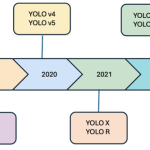Dive into Morgan Housel’s “The Psychology of Money” and challenge common misconceptions about wealth. Learn how true financial freedom and happiness come from mindset, not just material possessions.
Hello everyone, and welcome back to our weekly book series from Better Version! Today, we’re diving into a profoundly insightful book that challenges our ingrained beliefs about money: “The Psychology of Money” by Morgan Housel. As the saying goes, your beliefs about money determine your destiny, whether it’s one of abundance or scarcity. So, what are your money beliefs, and are they truly serving you?
Housel’s book offers a refreshing, often counter-intuitive perspective on wealth, reminding us to avoid common pitfalls and helping us significantly improve our investment strategies and personal financial growth. I hope the insights from this book, shared in this post, will prove invaluable on your journey towards better financial management and development.
Beyond the Bank Account: Redefining True Wealth
Right at the beginning of “The Psychology of Money,” Housel introduces us to two powerful, contrasting anecdotes that immediately highlight the nuances of wealth:
The Millionaire Janitor vs. The Bankrupt Harvard MBA
- Ronald Read: The Humble Philanthropist. Ronald Read was an American philanthropist who lived a quiet, unassuming life in a suburb, passing away at 92. What sounded like an ordinary life took a surprising turn when it was revealed he had amassed a net worth of over $8 million USD. Before his passing, he willed most of his fortune to charity. People were baffled: How did a man living such a modest life accumulate so much? Investigations revealed no dark secrets, no lottery wins, no inheritance. His sole “secret” was consistently saving and investing what he earned for the long term.
- Richard Fuscone: The High-Flying Executive. In stark contrast, Richard Fuscone, a Harvard MBA graduate, became a highly successful senior executive in the finance industry. By his 40s, he was wealthy enough to retire early. However, a few years into retirement, he took out a massive bank loan to renovate his mansion, expanding it with lavish amenities, luxurious interiors, multiple bathrooms, and two large swimming pools. This mansion became his playground for extravagant parties. Maintenance costs alone reached an astounding $90,000 USD per month. He lived an exceedingly lavish lifestyle, constantly spending vast sums on entertainment. Not long after, the 2008 financial crisis hit. A significant portion of his assets evaporated instantly. Coupled with enormous bank debts and illiquid assets, he was forced into immediate bankruptcy.
These two stories powerfully illustrate a fundamental truth: saving money and accumulating assets is the real engine of wealth creation. No matter how much you earn, if you are constantly chasing material possessions and an extravagant lifestyle, it will never be enough; the finish line will perpetually elude you.
Four Costly Misconceptions About Money
Based on Housel’s insights, here are four common money misconceptions we should understand as early as possible:
1. The Endless Pursuit of “More”: When Enough Is Never Enough
Human desire for money and material possessions seems to have no end. When we acquire something, we immediately crave more. This insatiable appetite, while a motivator in some aspects of life, can lead to irrational financial decisions and catastrophic outcomes if applied to wealth management.
The book recounts the tragic stories of two financial giants:
- Jesse Livermore: The Overconfident Trader. In the 1920s, Jesse Livermore was an immensely successful stock trader, quickly becoming one of the wealthiest men in America. This success fueled his overconfidence and an insatiable desire for even more. He borrowed heavily to invest in the stock market, but miscalculations led him to lose everything in an instant, plunging him into debt. Compounded by marital problems, he tragically took his own life.
- Rajaratnam: The Billionaire Who Wanted More. Rajaratnam, former chairman of the world’s most famous consulting firm, McKinsey & Company, amassed a colossal fortune of around $1 billion USD. Yet, he constantly desired to become even wealthier, to join the ranks of multi-billionaires. This craving led him to engage in illegal insider trading to profit from the stock market. He was eventually exposed and sentenced to two years in prison, instantly destroying his reputation and career.
“The human desire for money and material possessions has no end. Our greed is bottomless.”
Social comparison also acts as a potent catalyst for dissatisfaction. There will always be someone wealthier, earning more, with a bigger house, or who seems “better.” The truth is, once you acquire these material possessions, you often find they don’t bring the deep meaning or lasting joy you anticipated.
We dedicate immense time striving for higher incomes and better quality of life, but there’s a point where we must learn to be content. “Knowing when enough is enough” is a common phrase, but truly applying it is challenging. So, what can we do?
To cultivate contentment and break free from the “never enough” trap, remember these four principles:
- Compare Less: Stop comparing your possessions and achievements with others’.
- Chase Fewer Trends: Avoid mindlessly pursuing the latest fads and consumer trends.
- Care Less About External Opinions: Don’t let others’ thoughts about you dictate your financial decisions.
- Cherish What You Have: Practice gratitude for your current blessings.
Embracing these principles will help you discover that happiness is much more readily available than you thought.
2. Money Doesn’t Buy Respect: The Misguided Quest for Admiration
The author highlights a fascinating psychological phenomenon: When you see a beautiful, expensive car on the street, if you observe your inner thoughts, you’ll likely realize that most people don’t think about the wealthy, successful person driving it. Instead, they think, “If I had a car like that someday, everyone would think I’m successful.”
Here’s a crucial point: People often desire to prove their success through external material possessions, but in reality, others typically don’t focus on the owner of those possessions; their attention is drawn solely to the item itself. Therefore, trying to gain respect through material wealth is a complete fallacy. Many times, when you desire a beautiful home, a luxury car, or an expensive item, your true inner desire is often to gain respect and admiration from others.
If you find yourself with such desires and thoughts, pause and ask yourself what you’re truly seeking. You will never earn genuine respect from others through external possessions. Instead, learn to be humble and empathetic towards those around you.
3. True Wealth Is Invisible: What You Don’t See Matters Most
Housel shares a story from his youth about his friend, Roger, who, despite being young and having an unclear profession, owned a Mercedes. The author initially felt a pang of admiration. However, after a while, he saw Roger driving a Honda. Upon inquiry, he learned Roger couldn’t afford the car payments for several months, and the bank had repossessed the Mercedes. This incident profoundly changed the author’s perspective on wealth.
In many societies, people often judge others’ financial success based on what they visibly see: grand houses, luxury cars, lavish social media images. But these things do not represent a person’s true wealth. When we see someone driving a $100,000 car, it means their bank account is $100,000 poorer, or they’ve taken on a $100,000 loan to pay for that car. We have no idea what their actual bank balance is or how much they’ve invested.
There’s a significant difference between “having money” (referring to monthly income) and “having wealth” (referring to the actual money and assets you have accumulated and retained). If someone drives a $100,000 car with payments, it indicates they have money because they can at least afford the monthly installments. But for those who have true wealth, we often don’t know how much they truly possess because their money is typically used for investments or businesses to continuously generate more money. This is a common blind spot that leads to misconceptions: we don’t see others’ assets, so we automatically judge financial success by external material possessions.
However, people are incredibly adept at imitating others’ excessive spending habits. This subtly becomes a benchmark for imitation, and you gradually start to believe that successful people should own such expensive items. You must understand that many genuinely wealthy people in this world live very simply, while others who appear glamorous on the outside might be on the verge of bankruptcy. If your goal is to strive for a life of apparent wealth and glamour, pause and reflect immediately.
“Most people want to have a million dollars, but in reality, in their hearts, they want to spend a million dollars. Consuming money to show you have money is the fastest way to run out of money.”
Be rational in managing and using your money.
4. True Wealth Buys Freedom, Not Just Things
Those who advocate for hedonism often argue that you can’t take money with you when you die, so saving is meaningless. Housel encourages us to adopt a different perspective: beyond material possessions, freedom is what gives us the greatest returns. This means freedom gives us the power to control our own lives and time.
A study from the University of Michigan proves that the more choices people have, the easier it is for them to achieve happiness. When you have the power to choose to spend time with loved ones, or pursue work you genuinely desire, it brings more happiness than buying a bigger house or climbing higher in your company.
Accumulating money, little by little, to a level that grants you financial independence and autonomy, changes your perspective. The money you haven’t spent doesn’t mean it’s meaningless; it provides you with more life choices and greater time flexibility. For example, if you’ve saved enough for one year of living expenses, you gain significant time flexibility for that year. You’ll have more time to truly understand yourself and find a job that aligns with your values, rather than being stuck in one that makes you miserable.
The more money you accumulate, the more choices you’ll have. You might choose a job with a lower salary but one that doesn’t demand overtime or excessive hours, freeing up time for your passions and personal development plans. Use your money to buy time and choices in your own life, because very few luxurious material possessions can truly bring genuine happiness and freedom.
Our lives today are considerably wealthier than those of our grandparents’ generation, yet studies show that 45% of people feel unhappy and stressed. The author points out the main reason: many of us only want to spend money on more expensive things, which often means sacrificing our right to control our time. For instance, someone buying an item with installments beyond their means is essentially binding themselves to a specific job to afford those payments. For the duration of that debt, they won’t have the time to choose or experience other aspects of life.
Housel deeply values and recommends another book, “30 Lessons for Living,” which interviewed 1,000 elderly individuals about their life experiences and wisdom. Not a single person said that to live happily, you must strive to earn more money to buy what you want. No one said you must at least keep up with those around you or have more money to be considered successful. No one said that having more money guarantees happiness. What they cared about was being able to gather with friends, contribute value to a community, and spend time with family.
Finally, the author shares that over the years, his income has increased significantly, but his lifestyle has remained unchanged. He and his wife and children live in a very ordinary house, drive a normal car, wear simple t-shirts, and enjoy delicious home-cooked meals. Most of their life’s joys come from walking, reading, and listening to podcasts – hobbies that don’t cost much money. While this lifestyle may not suit everyone, we should all seek a way of living where, beyond material possessions, we can find inner contentment.
“True success is withdrawing from endless competition, adjusting your life, and finding inner peace.”
Ready to Redefine Your Relationship with Money?
These insights from “The Psychology of Money” offer a profound shift in how we view and interact with our finances. Remember, it’s not about how much you earn, but how wisely you manage it to secure your freedom and peace of mind. As Housel suggests, “Freedom is what gives us the greatest returns.”
What are your biggest takeaways from these misconceptions? Have you ever found yourself caught in the trap of endless comparison or seeking validation through possessions? Share your thoughts and experiences in the comments below – let’s learn and grow together on our journey to true financial well-being!








Leave a Reply